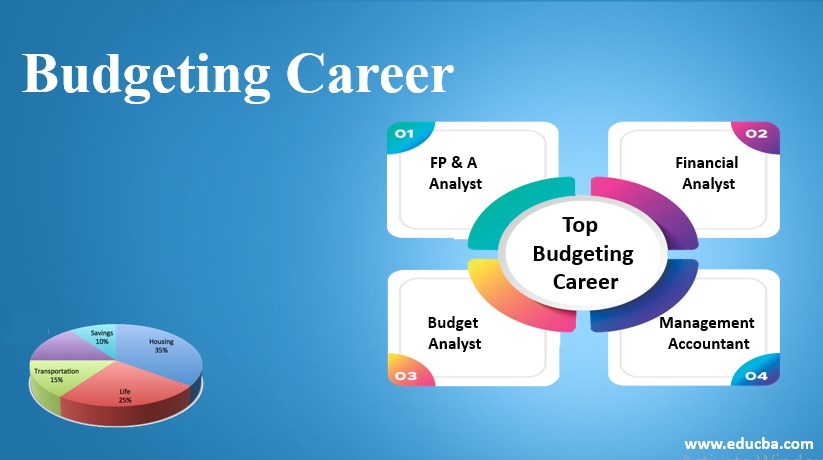
How to Budget for a Career Change
Written: Editor | July 11, 2023
:max\_bytes(150000):strip\_icc()/evaluate-budget-piggy-bank-56a6349a3df78cf7728bd47f.jpg)
Assessing Your Finances
Evaluating your current financial situation
If you're considering a career change, it's important to assess your current financial situation and ensure you have a solid foundation before making any drastic moves. Take a close look at your income, expenses, savings, and debts. Understanding where you stand financially will help you make informed decisions throughout the transition process.
Evaluate your income sources and calculate your monthly expenses to determine your cash flow. Consider all your financial obligations, such as rent or mortgage payments, utilities, groceries, transportation costs, and any debt repayments. This will give you a clear picture of your financial obligations and help you identify areas where you can potentially cut expenses.
Creating a budget for a career change
With a clear understanding of your current financial situation, you can start creating a budget that will support your career change. Begin by setting clear goals for your new career, including the income you want to achieve and any additional training or education expenses.
Take into account any changes in your income and be realistic about the potential fluctuations during the transition phase. Identify areas where you can reduce expenses, such as cutting back on eating out or entertainment costs, and allocate funds towards your career change goals. Prioritize your expenses and make sure you have a cushion for unexpected financial emergencies.
Exploring potential sources of income during the transition
During your career change, it's essential to maintain a stable income to support yourself financially. Consider exploring potential sources of income that will help bridge the financial gap during the transition. This could include taking on freelance or consulting work related to your new career, starting a part-time job, or renting out a room on platforms like Airbnb.
Additionally, research any grants, scholarships, or financial aid that may be available for individuals who are undergoing a career change. Many organizations and institutions offer support to individuals looking to make a career switch by providing funding for education or training programs.
As you navigate your career change, remember to regularly review and adjust your budget as needed. By staying financially aware and proactive, you can manage your finances effectively and ensure a smoother transition into your new career.

Cost of Education and Training
Considering a career change can be both exciting and overwhelming. One important factor to consider is the budget required for the necessary education and training. Here are some key points to help you navigate the financial aspect of your career change journey.
Researching the cost of acquiring new skills or degrees
Start by researching the programs and courses that align with your career goals. Look into the tuition fees, whether it's a certificate program, a degree, or a professional certification. Take into account any additional expenses like textbooks, supplies, or online course fees. This will give you a clear estimate of the cost involved in acquiring the new skills or degrees you need for your career change.
Budgeting for tuition fees and study materials
Create a comprehensive budget that includes all the expenses related to your education and training. This should include tuition fees, study materials such as books and software, exam fees, and any other relevant costs. Be sure to consider the duration of the program or course and allocate funds accordingly. Set aside a portion of your monthly income specifically for these expenses to ensure you have the necessary resources when needed.
Exploring scholarship and financial aid options
Look into scholarship and financial aid options that may be available to support your education and career transition. Many educational institutions offer scholarships or grants for adult learners or individuals pursuing specific fields. Additionally, explore government-sponsored programs or loans that can help ease the financial burden. Researching and applying for these opportunities can significantly reduce the financial stress associated with your career change.
Remember, planning your budget for a career change requires careful consideration of all the costs involved. By researching the cost of education and training, budgeting for tuition fees and study materials, and exploring scholarship and financial aid options, you can successfully navigate the financial aspect of your career change journey. With proper planning and financial support, you can pursue your new career path with confidence.

Managing Living Expenses
Budgeting for reduced income during career transition
Are you considering a career change but worried about managing your finances during the transition? It's understandable to have concerns when it comes to budgeting for a reduced income. However, with proper planning and adjustments, you can navigate this period smoothly.
Start by assessing your current financial situation and calculating your new income. Determine what expenses are necessary for your day-to-day living and prioritize them. Consider setting aside a portion of your savings as a buffer for any unforeseen expenses that may arise.
Trimming unnecessary expenses and finding ways to save
During this career transition, it's essential to trim unnecessary expenses and find ways to save money.
-
Review your monthly expenses: Analyze your spending habits and identify areas where you can cut back. Look for subscriptions or services that you no longer utilize or could do without.
-
Create a budget: Establish a budget that reflects your reduced income. Allocate funds for essentials such as rent/mortgage, utilities, groceries, and transportation. Limit discretionary spending and be mindful of your financial limitations.
-
Explore cost-saving measures: Look for opportunities to save on everyday expenses. Consider shopping at discount stores, using coupons, or buying generic brands. Explore options for lower-cost entertainment and leisure activities.
Exploring alternate housing and transportation options
During a career transition, it may be beneficial to explore alternate housing and transportation options.
-
Housing: If you're renting, consider downsizing to a more affordable place or explore house-sharing options. If you own a home, explore refinancing or renting out a portion of your property to generate additional income.
-
Transportation: Opt for cost-effective transportation options like carpooling, public transportation, or cycling. If owning a car is not essential, you could sell it and rely on alternate modes of transportation.
Remember, budgeting for a career change requires careful planning and adjustments. By being proactive and making strategic choices, you can effectively manage your living expenses during

Financial Safety Nets
Building an emergency fund for unexpected expenses
If you're considering a career change, it's crucial to have a financial safety net in place. Building an emergency fund is a great place to start. By setting aside money specifically for unexpected expenses, you can ensure that you have a cushion to fall back on during the transitional period.
To build an emergency fund, start by determining how much you need to cover several months' worth of expenses. Aim to save at least three to six months' worth of living costs. You can achieve this by setting aside a portion of your income every month specifically for your emergency fund. Automating your savings can help make the process easier and ensure that you stay committed to the goal.
Exploring health insurance and retirement savings options
During a career change, it's crucial to consider the impact on your health insurance and retirement savings. Evaluate your current health insurance coverage and determine if any changes are necessary. If you're transitioning from a job with employer-sponsored insurance, look into alternative options such as private plans or COBRA coverage.
Additionally, assess your retirement savings and make any necessary adjustments. If you had a 401(k) with your previous employer, you may need to roll it over into an individual retirement account (IRA) or your new employer's retirement plan. Ensuring that you continue to contribute to retirement savings will help secure your financial future.
Considering the significance of insurance coverage during a career change
Insurance coverage is often overlooked during a career change, but it is crucial to protect yourself and your assets. Evaluate your current insurance policies and determine if they still meet your needs. Explore options for health, life, disability, and liability insurance. Depending on your specific circumstances, you may need to make adjustments or acquire additional coverage to ensure comprehensive protection.
In conclusion, when embarking on a career change, it's essential to prioritize your financial security. Building an emergency fund, exploring health insurance and retirement savings options, and ensuring comprehensive insurance coverage are all crucial steps to take to navigate the transition successfully.
-Words: 258

Seeking Professional Guidance
If you're considering a career change, it's important to carefully plan and budget for the transition to ensure a smooth financial journey. Here are some key points to consider:
Consulting a financial advisor for expert advice
A financial advisor can help you navigate the financial aspects of a career change. They can assess your current financial situation, analyze your goals, and provide guidance on how to allocate your resources effectively. A professional advisor can also help you create a budget that takes into account the potential changes in income and expenses during the transition period.
Exploring potential tax implications of a career change
A career change may have tax implications that you should be aware of. Different professions and industries may have different tax regulations, deductions, and credits. Consult with a tax professional to understand the potential impact on your tax obligations and identify any tax-saving strategies that may be available to you.
Understanding the long-term financial impact of the transition
Take the time to assess the long-term financial impact of your career change. Consider factors such as salary potential, benefits, retirement contributions, and career growth opportunities. Evaluate how these factors align with your financial goals and make adjustments to your budget and financial plans accordingly.
Remember, a career change is not just about finding a new job; it also involves careful financial planning. Seeking professional guidance, considering tax implications, and assessing the long-term financial impact will help you make informed decisions and ensure a successful transition to your new career.

Conclusion
Making a career change can be an exciting but challenging endeavor. However, with proper budgeting and financial planning, you can navigate this transition smoothly and achieve your career goals. By considering key budgeting considerations, such as evaluating your expenses, creating a financial cushion, and exploring income streams, you can set yourself up for success. Additionally, implementing strategies for managing your finances during the transition, such as reducing unnecessary expenses, exploring alternative financing options, and seeking financial assistance if needed, can help alleviate financial stress. Remember to utilize available resources, such as budgeting apps, career counseling services, and financial planning resources, to support your financial journey. With the right mindset and proactive approach, you can confidently pursue a career change while maintaining financial stability. Good luck on your new career path!
Summary of key budgeting considerations for a career change
- Evaluate your expenses and identify areas where you can reduce costs to create a budget that supports your career change.
- Build a financial cushion by saving money to cover any potential income gaps during the transition.
- Explore alternative income streams, such as part-time jobs or freelancing, to supplement your income.
- Research and consider the financial impact of any required training or education for your new career.
- Review your insurance coverage, such as health and disability insurance, to ensure you are adequately protected during the transition.
Tips for successfully managing your finances during the transition
- Cut back on unnecessary expenses to free up more money for your career change journey.
- Explore financing options, such as personal loans or lines of credit, if you need financial assistance.
- Seek financial advice or counseling to help you make informed decisions and navigate the financial aspects of your career change.
- Create a detailed budget and track your expenses meticulously to stay on top of your financial situation.
- Network with others who have successfully made a career change to gain insights and learn from their experiences.
Additional resources for financial planning and career change budgeting
- Budgeting apps like Mint or YNAB can help you track your expenses and manage your finances effectively.
- Career counseling services can provide guidance and support in making a successful career change.
- Financial planning resources, such as books, podcasts, or online courses, can offer valuable insights and strategies for managing your finances during a career transition.
- Consider consulting a financial advisor to get personalized advice based on your specific financial situation and career goals.



